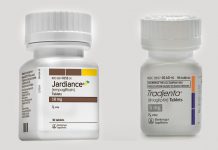A large diabetes prevention study has found that making smaller changes to your lifestyle, diet, and physical activity could halve the risk of developing type 2 diabetes.
The study called the Norfolk Diabetes Prevention Study (NDPS) was published in the journal JAMA Internal Medicine.
Researchers found that losing at least 6 pounds of weight through physical activity and diet over two years reduced the risk of type 2 diabetes by 40 to 47% for people with prediabetes.
The National Institute for Health Research (NIHR) and NIHR CRN Eastern funded the study, while the Norfolk and Norwich University Hospital (NNUH), University of East Anglia (UEA), Ipswich Hospital, and the Universities of Birmingham and Exeter led the NDPS.
Check out what the study authors have to say:
Prof. Mike Sampson of NNUH said, “We are delighted with the results of this trial, as until now no one was very sure if a real-world lifestyle program prevented type 2 diabetes in the prediabetes population we studied, as there have been no clinical trials that had shown this.”
“We have now shown a significant effect in type 2 diabetes prevention, and we can be very optimistic that even a modest weight loss, and an increase in physical activity, in real-world programs like this have a big effect on the risk of getting type 2 diabetes,” he continued.
“This is really great news for the eight million people in the UK with a prediabetes diagnosis. The results of this trial show that diabetes prevention is possible in the same prediabetes populations being treated in the NHS national diabetes prevention program. This is important to know, as the clinical methods for diagnosing diabetes and prediabetes have changed a lot in recent years.”
Max Bachmann of UEA said, “The NDPS intervention was delivered in groups which were far less expensive than individual-focused interventions which have previously shown to be effective under optimal conditions. For every 11 people who received the NDPS intervention, one person was prevented from getting type 2 diabetes, which is a real breakthrough”
Prof. Colin Greaves of the University of Birmingham said, “If you have been diagnosed with prediabetes, this approach offers a way to take a different direction in your life—to get off the path to type 2 diabetes and onto the road to a healthier future.”
Dr. Jane Smith of the University of Exeter said, “Type 2 diabetes is a huge health challenge globally. NDPS is an incredibly positive story for individuals and healthcare systems, and underlines the importance of providing national diabetes prevention programs, which can use our research findings.”
Prof. Jonathan Valabhji of NHS said, “This study with similar referral criteria and similar intensive lifestyle intervention to the NHS Diabetes Prevention Program has surpassed expectations in preventing type 2 diabetes. This is hugely encouraging for the NHS Diabetes Prevention Program, and what participants might expect to achieve in the longer term.”
Dr. Elizabeth Robertson of Diabetes UK said, “We welcome this new research showing that a group-based support program can help people at high risk of developing type 2 diabetes reduce their risk. This trial again highlights how achieving modest weight loss through diet and physical activity changes can lead to huge benefits for people at high risk of developing type 2.” “Type 2 diabetes is a serious condition, but with the right help many cases can be prevented or delayed,” she added. “Diabetes UK’s Know Your Risk tool helps people to determine their risk and take steps to reduce it, including by self-referring on to NHS England’s Diabetes Prevention Program in their local area.”





















